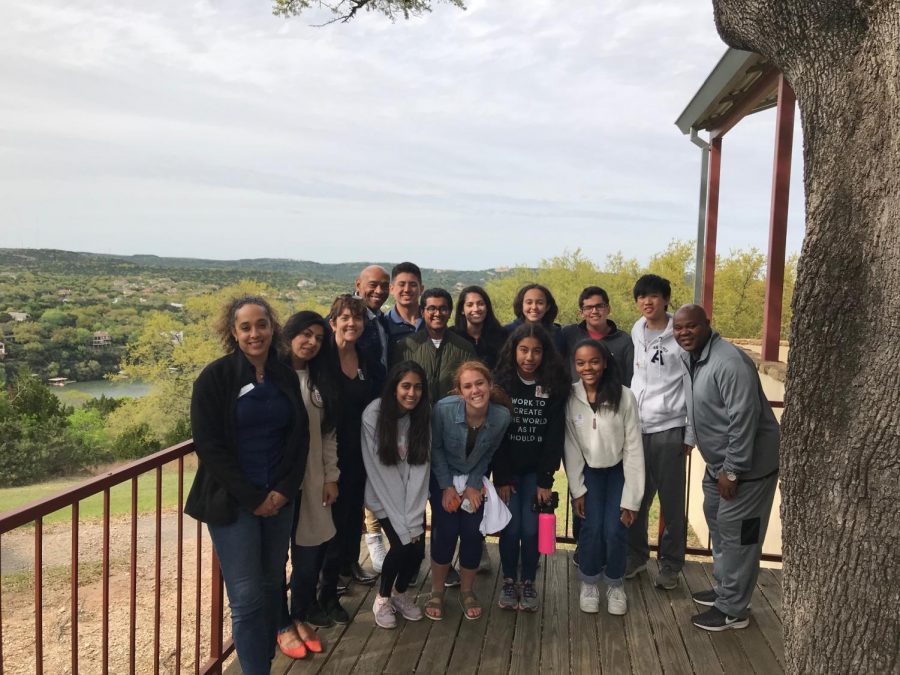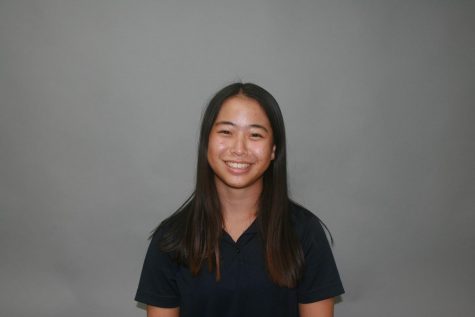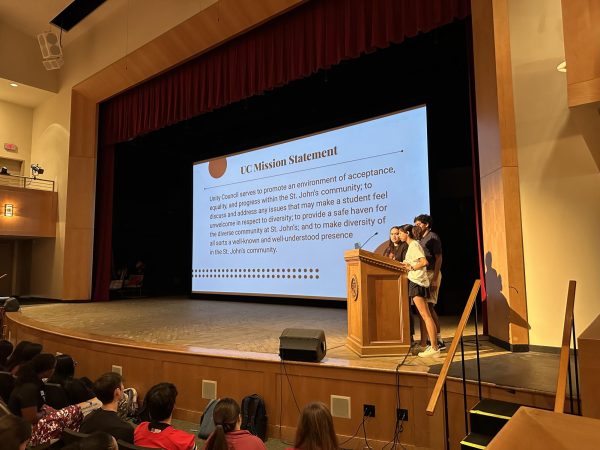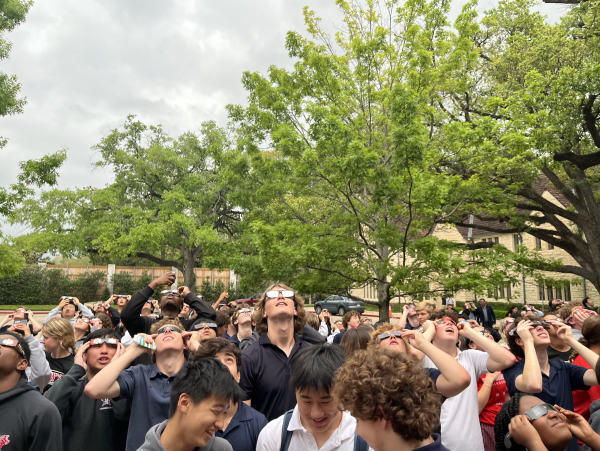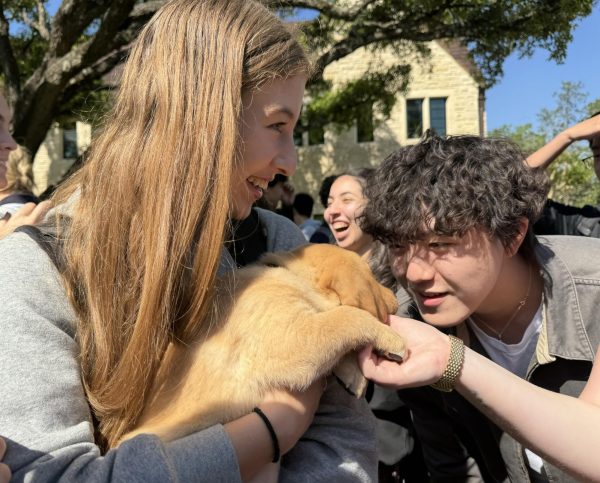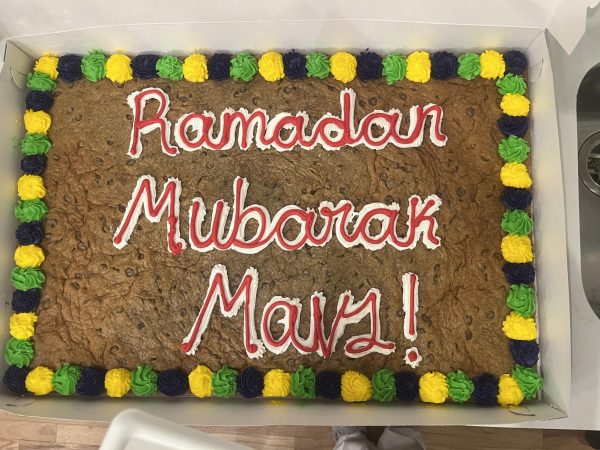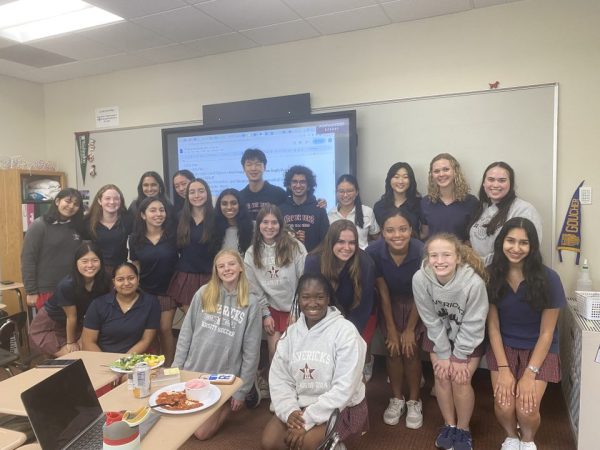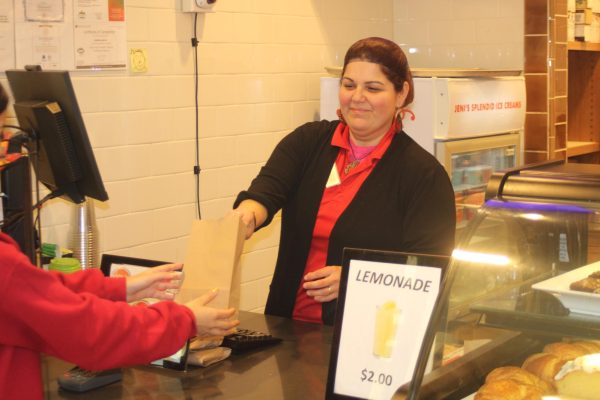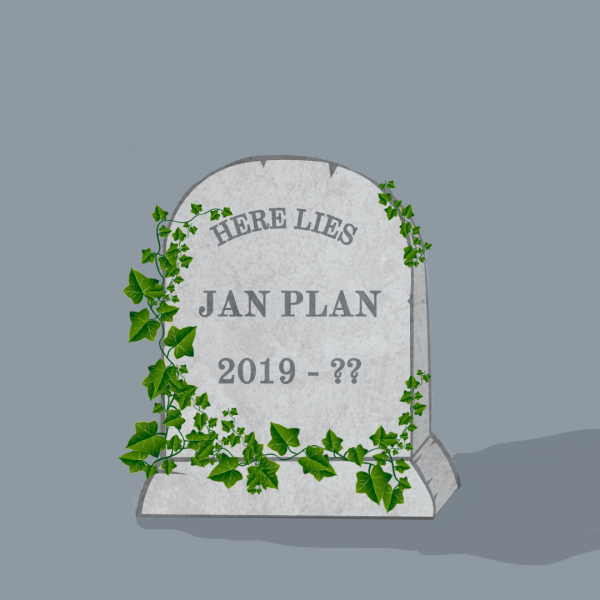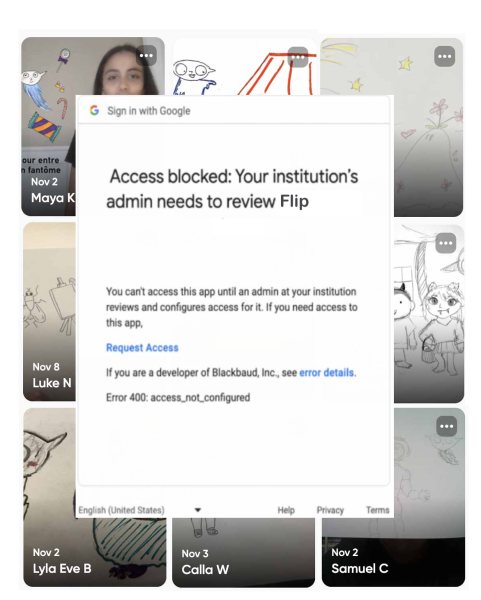Students, faculty attend ISAS Diversity Conference
Students and faculty attended the ISAS diversity conference on March 30.
April 15, 2019
Over 70 students sat in the chapel of St. Stephen’s Episcopal School, sharing their experiences with diversity in their own schools.
On March 30, 11 St. John’s students and five faculty members attended the inaugural ISAS Diversity Conference. Led by Rodney Glasgow and John Gentile from The Glasgow Group, the conference, named Radical Hope, aimed to instill a sense of hope for change in students and teachers. Throughout the day, students attended sessions with Gentile while adults attended sessions with Glasgow.
St. John’s students and faculty attended the conference to share their own experiences, learn from others and network with other schools to advance community and inclusion beyond the conference.
“The conference was successful in giving us an important sense of purpose and relevance in our work in community and inclusion, particularly as our school takes our new Community and Inclusion Statement to the next level,” Director of Community and Inclusion Gene Batiste said.
Junior Shelby Wilson focused on learning from other schools and gaining new tools to make the School a more inviting and caring environment.
“By sharing our experiences, we were able to come home with a lot more ideas of things we can implement at SJS,” Wilson said. “It was really a place to exchange ideas and help make our community better.”
Freshman Eliot Aiman regained a sense of hope for change from the conference while bonding with students and faculty who aspired to create change at St. John’s.
“It was a group of high school students who all wanted to create change at St. John’s, to learn how to create change, and to keep radically hoping,” Aiman said. “I was so glad to be surrounded by people who actually wanted to be there.”
Both Aiman and Wilson learned about the difference between allies and practitioners. According to Wilson, while allies support groups and movements, practitioners actively practice their support.
“While we need allies in our community, allies are more passive and they may support the change, but they are not helping create the change,” Aiman said.
According to Wilson, St. John’s now places a much stronger emphasis on community and inclusion compared to two years ago.
“The conference made me realize we’re doing better than we think,” Wilson said.
Aiman hopes to share what she learned at the conference with others in the community.
“At St. John’s, we need to have more events where students and faculty can and will share their experiences from the I perspective,” Aiman said. “I hope people will take advantages of these conversations so that we can all connect and talk to one another.”
According to students and faculty who attended the conference, although the School has made significant progress in addressing diversity, the community still has areas for improvement.
“My hope is that our participation in the ISAS Diversity Conference will spur our commitment and energy to supporting our school’s comprehensive community and inclusion initiatives,” Batiste said. “Hopefully, we can gain the participation and support of more students, faculty and staff.”



